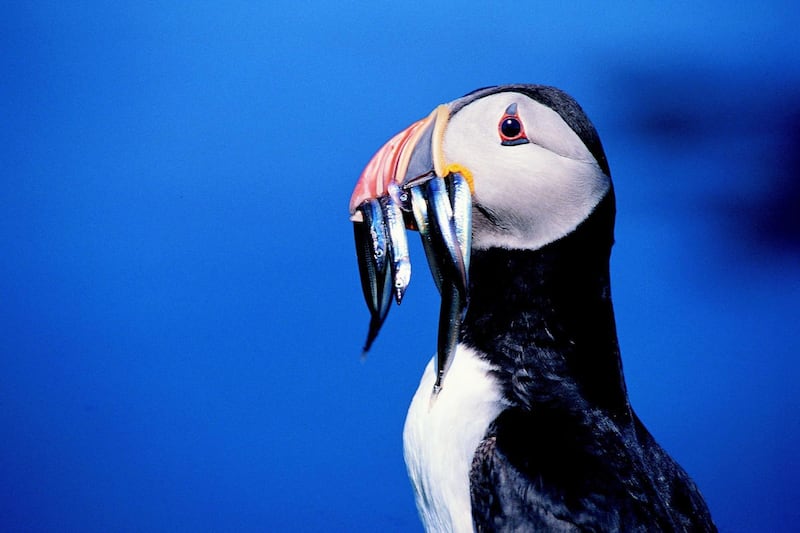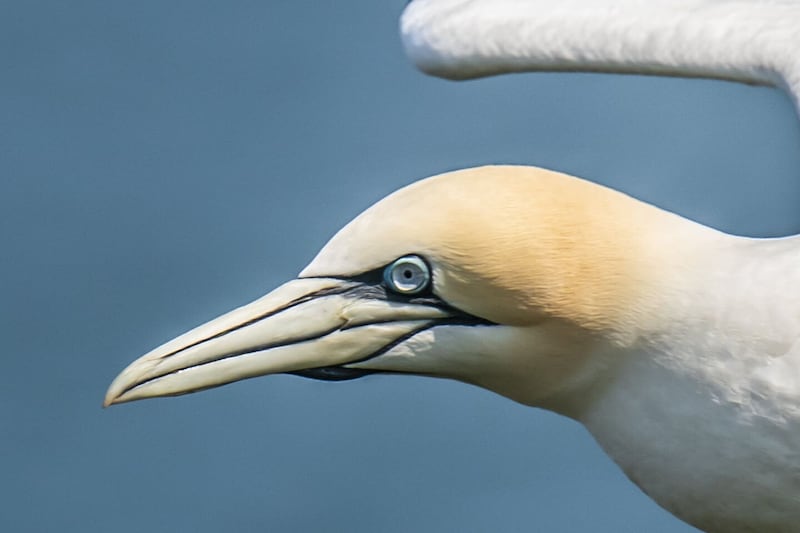Ministers are being urged to “stand strong” on moves to close a fishery in UK waters to protect puffins and other wildlife in the face of EU opposition.
The UK Government announced the closure of all Scottish waters and the English North Sea to sand eel fishing – a key food source for seabirds along the British coasts – in January, with the move coming into force in late March.
But it has been challenged by the European Commission, which has requested consultation with the UK to discuss the legitimacy of the closures – in a move that conservationists have labelled as “shameful”.
A coalition of conservation groups is backing the Government’s stance, which they say supports a wide range of under-pressure wildlife including seabirds such as puffins and kittiwakes, as well as seals, porpoises, whales, haddock and whiting.
Sand eels are targeted for their oil and use in feed for livestock and farmed salmon, and the closures affect EU fishing vessels.
The UK move to implement the closures to all boats targeting the fish comes after expert advice that prohibiting fishing for sand eels in the North Sea will benefit seabirds, fish and marine mammals.
The Government said it could improve resilience of seabirds in the face of bird flu, and international fisheries scientists have acknowledged that their advice on quotas did not take into account the needs of wildlife that feed on the fish.
Consultations found 95% of respondents in England and 97% in Scotland back moves to prohibit sand eel fishing in UK waters.
The coalition of conservation groups warn species that are dependent on sand eels are in decline, with puffin numbers down by 23% in the past few decades and kittiwake populations down by 43%, with unsustainable fishing one of the key drivers for the falls.
And in the last few years, avian flu has killed tens of thousands of birds including gannets and skuas, devastating already declining species and reversing positive trends in others, they warn.
The UK is failing on 11 out of 15 marine indicators for good environmental status, particularly on seabirds, and the closures of the sand eel fisheries in the North Sea “throws a lifeline to UK seabirds”, the organisations said.
The open statement from the groups, which include the RSPB, Whale and Dolphin Conservation (WDC), the Wildlife Trusts, Wildlife and Countryside Link, the Angling Trust and European conservation organisations, said it is “incumbent” on the EU to support the UK’s move.
They are urging the EU to reconsider its present position.
Kirsten Carter, head of UK marine policy at the RSPB, said: “Sand eel fishery closures in the UK will throw a vital lifeline to seabird populations that have been hit repeatedly by pressures such as overfishing, climate change and highly pathogenic avian influenza.
“We fully support the UK Government in staying the course on this vital issue and see this as a first step towards seabird recovery.”
Hugo Tagholm, executive director of Oceana UK, said: “The UK has taken progressive and important action in ending the commercial fishing of sand eels and we urge the Government to stand strong in the face of these retrogressive challenges from the EU, which are clearly driven by aggressive tactics from the industrial fisheries lobby.”
Ariel Brunner, director of BirdLife Europe and Central Asia, said: “The EU’s decision to challenge such a positive measure is simply shameful.
“The European Commission is seeking to prevent the UK from taking urgently needed action which the EU itself should have taken long ago.”
And Richard Benwell, chief executive of Wildlife and Countryside Link, described the EU’s challenge to the UK’s decision as “hugely disappointing”.
He said: “We sympathise with economic concerns, but sand eel fishery closures will ultimately boost many fish stocks including haddock and whiting, providing a more reliable future for the fishing industry in these waters, and help restore struggling seabird and mammal populations.”
The UK Government has agreed to the EU’s request for consultations.
But a Government spokesperson said: “We took the decision to close our North Sea waters to all sand eel fishing to protect seabirds.
“This closure is fully compliant with our obligations under the EU-UK Trade and Co-operation Agreement and applies equally to UK and non-UK vessels.
“This was a necessary step to safeguard vulnerable seabird populations, including species like kittiwakes who are at serious risk, and builds on domestic measures already in place – the UK has not allocated any quota to fish sand eel to UK vessels in three years.”









